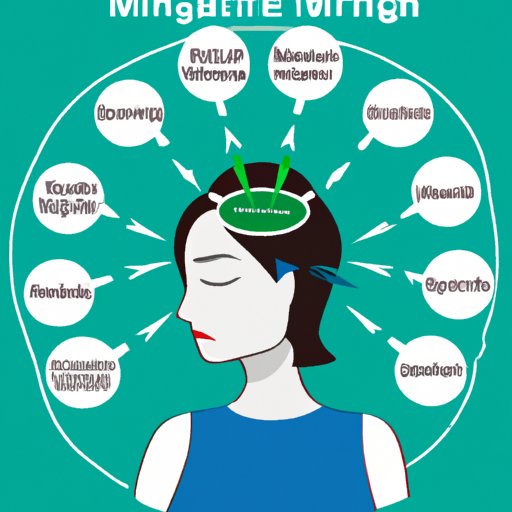
Introduction
Migraines are a type of headache that can cause severe pain, nausea, and other uncomfortable symptoms. They are often debilitating and can last for hours or even days. In this article, we will discuss various natural remedies, lifestyle changes, and treatments that can help alleviate migraine symptoms and reduce the frequency of attacks.
7 Natural Remedies for Treating a Migraine
There are several natural remedies that can be used to treat migraines. Some of these include ginger, feverfew, and magnesium. Ginger has anti-inflammatory properties that can help reduce pain and nausea, while feverfew may help relax blood vessels in the brain. Magnesium, on the other hand, may help reduce migraine frequency by reducing the constriction of blood vessels in the brain. While many people report success with natural remedies, the scientific evidence supporting their effectiveness is limited. However, they may still be worth trying, as they are generally safe and have few side effects.
Migraine Relief: Understanding Triggers and Treatment Options
It is important to understand the common triggers of migraines, such as stress, certain foods (such as chocolate or caffeine), environmental factors (such as bright lights or loud noises), and hormonal changes. Once triggers are identified, they can be avoided or managed to reduce the likelihood of a migraine attack. Treatment options include over-the-counter medications such as aspirin or ibuprofen, as well as prescription medications like triptans or beta-blockers. However, these medications can have side effects and may not work for everyone, so it’s important to find the right treatment for each individual.
Quick Fixes: Ways to Alleviate Pain during a Migraine Attack
During a migraine attack, there are several things you can do to help alleviate pain and manage symptoms. One of the most effective methods is to use ice packs or warm compresses on the forehead or neck, as this can help reduce inflammation and soothe the affected area. It is also essential to avoid bright lights and loud noises, as these can exacerbate symptoms. Other self-care measures include getting enough sleep and staying hydrated, as dehydration and fatigue can make migraines worse.
Lifestyle Changes that May Help to Prevent Migraines
There are several lifestyle changes that may help prevent migraines. For instance, regular exercise can help reduce stress and improve overall health, potentially reducing the frequency and severity of migraines. Additionally, reducing stress through mindfulness practices like yoga or meditation may help alleviate symptoms. Getting enough sleep is also crucial for preventing migraines, as fatigue is a common trigger. Finally, it may be helpful to maintain a healthy diet and avoid known triggers like caffeine or alcohol.

Migraine Management: The Benefits of Massage Therapy and Acupuncture
Massage therapy and acupuncture are two alternative treatments that may be used in conjunction with traditional treatments to manage migraines. Massage therapy can help promote relaxation and reduce muscle tension, while acupuncture may help reduce pain and inflammation. While the evidence supporting the effectiveness of these treatments is mixed, they may be worth trying for people who have not found relief with other treatments.
Over-the-Counter vs. Prescription Drugs: What’s the Best Way to Treat Migraines?
There are many different medications available to treat migraines, both over-the-counter and prescription. Over-the-counter medications like aspirin or ibuprofen can help reduce pain, while prescription medications like triptans or beta-blockers may be more effective for severe symptoms. It is important to work with a healthcare provider to determine the right medication and dosage for each individual, as these drugs can have side effects and may interact with other medications.
Mindful Approaches to Migraine Treatment: The Benefits of Meditation and Mindfulness Practices
Mindfulness practices like meditation and yoga may help manage migraine symptoms and reduce the likelihood of future attacks. By promoting relaxation and reducing stress, these practices may help regulate the nervous system and prevent overstimulation. Additionally, practicing mindfulness can help individuals become more aware of their body and recognize early signs of a migraine, which may allow for earlier intervention and treatment.
Conclusion
Migraines can be debilitating, but there are a variety of treatments and lifestyle changes that can help manage symptoms and reduce the frequency of attacks. While each person’s experience with migraines is unique, it may be helpful to use a combination of these methods to find the right treatment plan. As with any medical condition, it is important to work with a healthcare provider to determine the best course of action.




